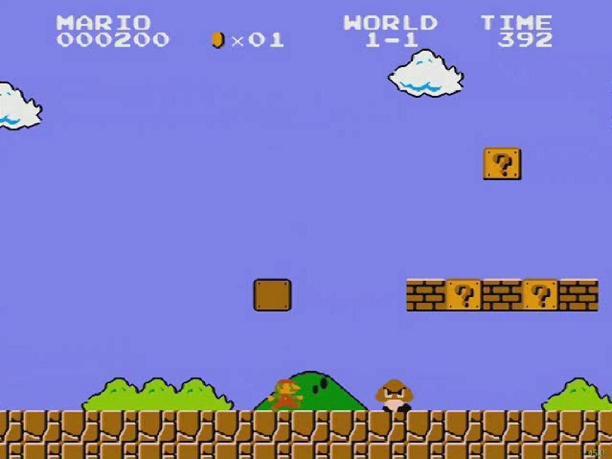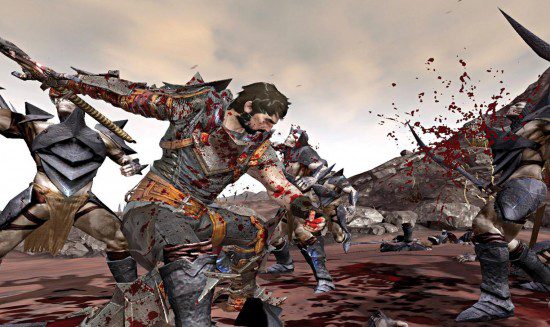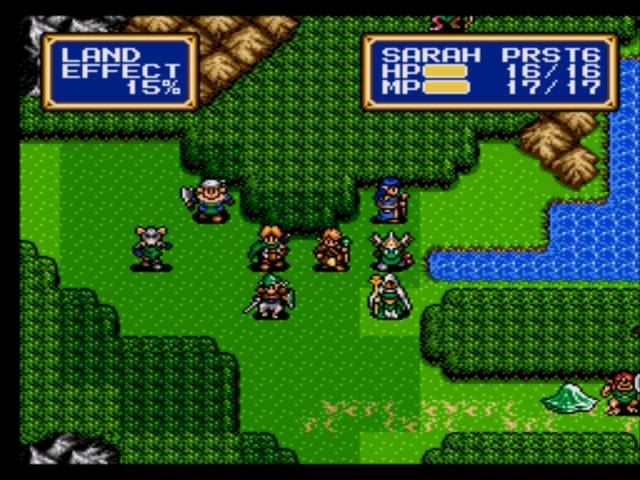Last week I finally broke down and got myself an iPhone. There are myriad reasons for doing it, but mostly I was tired of hearing about the games on there and being unable to play them. I spent my first few hours buying games and apps, then the next few hours playing them. After slogging through meaty games like Crysis 2 and Dragon Age 2 recently, it felt good to just pick up a game that was nothing but solid game play. While I was playing Cut the Rope the other night, I realized how games with great stories and grandiose setting have ruined gaming for me and taken most of the joy out of my favorite pastime.
When I was younger, I lost entire months of summer break to games like Shining Force and Final Fantasy. I still think back to the sheer joy and addiction of games from my NES and Genesis. While all of those games had stories, they were always secondary to the mechanics of the games themselves. Sonic, Mario, Metroid; all of them used simple plots, more concepts actually, to outline a context for what you were doing. Save a princess, save a forest or defeat a giant brain. Nothing complicated, nothing rich with continuity requiring 4 novels, a comic book series, various animated films and a 6 minute intro to explain. You saw what you needed to in the first 30 seconds and then jumped into the world. Now, it seems, more and more games are becoming so story driven that they seem to forget that games are meant to provide interactive entertainment, not a medium for failed Hollywood screenplays or fantasy series.
This issue really started in earnest with the PS2. Many of the RPG’s started to become vehicles for showing how advanced the system had come. With graphical fidelity comes cut scenes, and with those comes the need for story. Instead of taking the route of games like Shadow of the Colossus, where the game play is what makes the story, games took advantage of growing technology to start injecting movie-quality plots into games. Games like Final Fantasy XII, the hack// games, each installment of the Metal Gear series and even Kingdom Hearts started to put more emphasis on plot and graphics then on engaging game play. Final Fantasy XII was an absolutely incredible translation, and a story that I loved, but the game play itself was so poor that it became impossible to enjoy.
This generation the attempt to make games more like the film industry has gone into hyperdrive. More and more games, like the recently released Homefront, are being written by professional screen writers. They are employing Hollywood actors and using new technology to gather more of the performance and more of the realism. Look at LA Noire’s new facial software, a perfect example of creepy realism. Yet, while the game LOOKS incredible, the game play seems to be ignored during the previews, and I’m not confident that the desire to show off their compelling story and animation won’t overshadow the actual game.
As a person who reviews games (not professionally, but still), I tend to fall into that same trap. Often times the storyline weighs heavily into the way I judge a game. I love the original Mass Effect, but when I force myself to look at the actual game portion objectively, I can’t deny that it is a pretty huge mess. However, the events in Mass Effect are so compelling and incredible that it overcomes the flaws, which I think helped set a tone for future games. If you create a solid enough story, the game itself isn’t so important. Now we have an avenue for huge ideas without the constraints of Hollywood, where directors and writers can bring their ideas to life, provided they horseshoe in some game play between scenes. And when games fail to live up to its compatriots in the genre, we easily dismiss them. If we can’t enjoy the movie we’re being shown, we tend to dislike or ignore the actual game.
When I was a kid, the rush of mastering a level in Sonic, or the thrill of a well planned battle in Shining Force kept me riveted to my screen for hours. Now I get that same feeling from getting three stars in Angry Birds, or from a successful invasion in Zombie Farm. There are precious few big name games that can deliver the same effect. Bulletstorm proved to be an incredible shooter that played solely on the mechanics and let the story be over the top simply to provide new and better areas to play around in. Dragon Age 2 however, tried to be an emotionally driven story while literally repeating the same area over and over again with no real change in game play, leading to nothing but boredom. Sadly, too many games fall into the Dragon Age category.
Perhaps I’m simply waxing nostalgic, playing the “get off my lawn” card, but things really were better back in the old days. We may have breathtaking graphics and top-notch talent in our games, but the “game” portion is being more and more distilled and replaced with the bells and whistles. The skill that was needed to beat Mega Man and Mario, and the joy of getting that perfect run, has been removed in favor of the pontification of Malcolm McDowell. I don’t want great stories to disappear; I just hope that more studios realize that melding the game and the story yields better results than showing off your latest screenplay. We call them games for a reason.






